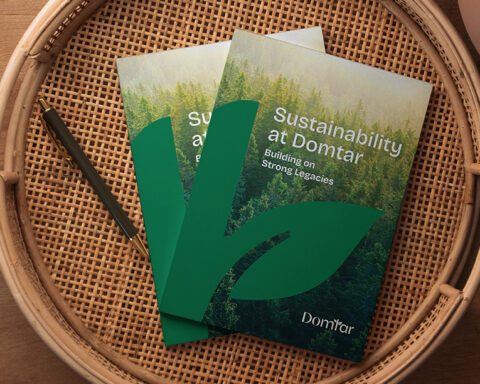Environmental, social, and governance (ESG) performance and actions toward achieving the UN Sustainable Development Goals (SDGs) are increasingly being embedded into strategic considerations and daily operations of organizations around the globe. While the efforts of many companies in advancing ESG/SDGs are admirable, very few individual businesses are in a position to influence their whole industry. Despite a genuine commitment to the cause, these organizations often reach the point where they might encounter barriers of reduced profits or loss of their market share, or simply lack the know-how to progress further effectively.
Unlike for-profit companies, professional, industry, or trade associations are well-poised to holistically influence the entire sector or profession they represent. Because of their size and with support from their membership, associations can help achieve progress on issues pertinent to a sustainable and just future and benefit not only their members but the broader society.
As many associations are rethinking their role in society and how they can inform, educate, and support their members in ESG/SDG actions, they are looking for helpful tools – from examples and case studies to best practices and more concrete guidance. To help associations embrace their potential and foster their ESG/SDG leadership, CSA Group recently released a special publication, CSA SPE-116:23, Environmental, Social and Governance (ESG) and Sustainable Development Goals (SDGs) for Associations.
Introducing the concept of an ESG/SDG association
The CSA SPE-116 special publication aims to inform, educate, and assist associations and their members in developing and meeting their ESG/SDG objectives. It introduces the concept of an ESG/SDG association as one that “implements measures resulting in continuous improvement of the environmental and social performance of its own operations, the sector or profession it represents, and its members.”
This concept is further outlined in 19 practices, or performance recommendations, that are divided into foundational and advanced. Foundational practices, such as the identification of member ESG/SDG priorities, enabling effective communication by adopting common ESG/SDG terminology and principles, or providing ESG/SDG information and education to members, are basic and transactional. Advanced practices are more complex, strategic, and impactful: embedding ESG/SDGs into an association’s governance, developing ESG/SDG standards and certification programs, or adopting and implementing social purpose approaches to help solve social and environmental issues are just a few examples of such advanced practices.
Associations are on the frontlines of ESG and the UN SDGs. Now is the time for them to lead and act. This guide and rating system can help them start and advance ESG and SDG programs to put their memberships – and society – on a sustainable path.
-Coro Strandberg, President, Strandberg Consulting and member of CSA Group’s Sustainability Steering Committee
Helping associations improve their ESG/SDG impacts
CSA SPE-116 serves as a resource helping associations learn about many current best practices they can leverage to support their ESG/SDGs strategies and initiatives. It also highlights the opportunities associations can adopt to influence improvements in their sector’s or profession’s ESG/SDG impacts and create a compelling value proposition for their members.
While these efforts can help transform their industry, they can also bring various benefits to the association itself. Leadership on ESG/SDGs can build the association’s credibility, reputation, and public trust in the sector or profession, giving the whole industry a social license to operate and grow.
Associations can use CSA SPE-116 as guidance and a roadmap for starting, advancing and evaluating their ESG/SDG programs, i.e., programs that address at least one environmental topic and one social topic, such as diversity and inclusion and climate change.
Identifying gaps and opportunities to improve
CSA SPE-116 also introduces a rating methodology that allows associations to self-assess their ESG/SDG programs. Whether associations are just starting a conversation on their ESG/SDG aspirations or already have a strategy and various programs running, they can use the rating method to look at where they currently stand. Rating results can help associations identify gaps and opportunities to improve ESG/SDG programs and benchmark and track progress over time – creating a pathway for their progress on ESG/SDGs.
The rating system has four levels of recognition: bronze, silver, gold, and platinum. To determine their rating, associations assess themselves against the 19 performance requirements. Each performance requirement has several subtasks that, based on a completion level, are given a score between 0-3. To achieve the gold level, the organization should score at least 70% of the total available points, and for the platinum level, at least 85%.
Associations can use their results and performance rating level to foster continuous improvement within their organizations, to develop or refresh their ESG/SDG strategy and work plan, or to develop new programs and initiatives. But it is important to note that the performance rating is a self-assessment. If used in any public claims, this should always be clearly indicated.
A tool that supports associations in their ESG/SDG efforts
This special publication was developed with a small group of experts and practitioners, led by Coro Strandberg, President of Strandberg Consulting and member of CSA Group’s Sustainability Steering Committee, to provide early guidance and tools for associations. Unlike standards, this publication is not a consensus-based, accredited document; however, it has been reviewed by a diverse range of associations, including the International Copper Association, Mining Association of Canada, Anishnawbe Business Professionals Association, Canadian Society of Association Executives, and Canadian Black Chamber of Commerce. Their initial response has been predominantly positive. It highlighted the usefulness of CSA SPE-116 as a guide, helping associations develop their sustainability offerings to members. Feedback from these associations also helped finalize the first edition of CSA SPE-116.
We hope that as more associations begin to implement CSA SPE-116 to build strategies and programs supporting their ESG/SDG efforts, their experiences and feedback will inform a future national standard developed through an accredited, consensus-based process.
We envision a future where associations in Canada and around the world are engaged in helping their members improve their ESG/SDG performance and mobilizing their professions and sectors to become a force for good. This tool can help start or advance the journey. We encourage you to share it with the associations you know.
To learn more about the CSA SPE-116:23 visit the CSA Store.
CSA Group always strives to provide up-to-date and accurate information. However, no representation or warranty, expressed or implied, is made that this information meets your specific needs, and any reliance on this information is at your own risk. Please contact CSA Group for more information about our services.
© 2023 Canadian Standards Association. All Rights Reserved.







